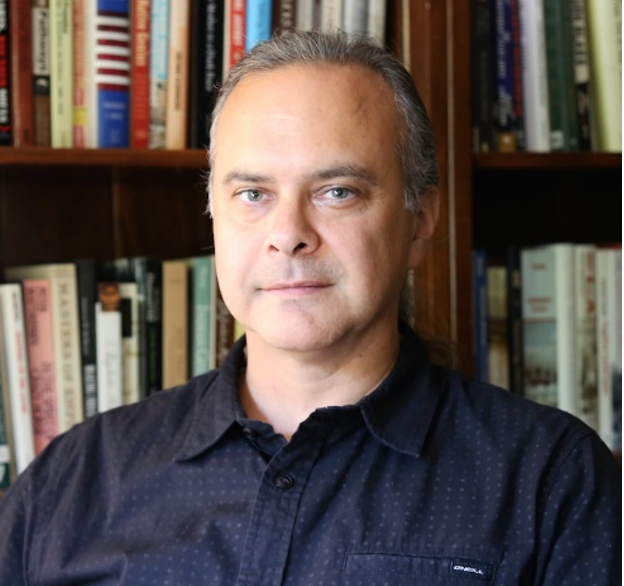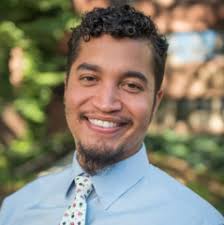Institute Faculty and Speakers

Dr. Lisa Brady is professor of history at Boise State University and former editor of Environmental History. Her research focuses on war and the environment, examining the ways military activities—during peace time and in times of conflict—shape and are shaped by the natural environment. Her book War Upon the Land: Military Strategy and the Transformation of Southern Landscapes during the American Civil War is the first book-length environmental history of the American Civil War.

Dr. Jonathan Hancock is associate professor of history and department chair at Hendrix College. He teaches courses on North American history, Native North America, and race and historical inquiry over time in the US South. Hancock’s book, Convulsed States: Earthquakes, Prophecy, and the Remaking of Early America, examines how, amid prophecies, political reinventions, and war, people in the winter of 1811–12 interpreted the strongest shaking in the North American interior in at least the past 500 years. He has published several articles, including an essay in Rethinking American Disasters: New Essays in Cultural, Political and Environmental History.

Dr. Scot McFarlane is the founder of the Oxbow History Company. He was previously a researcher at the American Historical Association and the inaugural research scholar for Historic New England's Recovering New England’s Voices initiative. As a river historian, McFarlane works with teachers, conservationists, and historians to help students learn American history through the history of rivers. He has published several articles on people's relationship to waterways in publications that include Environmental History and the Journal of Slavery and Abolition.

Dr. Joshua L. Reid (registered member of the Snohomish Indian Nation) is an associate professor of American Indian Studies and the John Calhoun Smith Memorial Endowed Associate Professor of History at the University of Washington. He holds degrees from Yale University and the University of California, Davis, and is a three-time Ford Foundation Fellow. Yale University Press published his first book, The Sea Is My Country: The Maritime World of the Makahs (2015) in the Henry Roe Cloud Series on American Indians and Modernity. It has received awards and acknowledgments from the Organization for American Historians, American Society for Ethnohistory, the Western History Association, and the North American Society for Oceanic History. Reid currently directs the university’s Center for the Study of the Pacific Northwest and edits the Emil and Kathleen Sick Series on Western History and Biography with UW Press and the Roe Cloud Series on American Indians and Modernity. He serves on the Board of Editors of the American Historical Review and the editorial advisory board of the Pacific Northwest Quarterly. He is also a member of the board of the National Council for History Education. Reid currently researches Indigenous explorers in the Pacific, from the late 18th century to the end of the 19th century.

Dr. J. T. Roane is assistant professor of Africana Studies and Geography and Andrew W. Mellon chair in Global Racial Justice in the Institute for the Study of Global Racial Justice at Rutgers University. His book, Dark Agoras: Insurgent Black Social Life and the Politics of Place, examines the ways working-class Black communities transposed rural imaginaries about and practices of place as part of their spatial resistances and efforts to contour industrial neighborhoods. He is the former co-senior editor of Black Perspectives, the digital platform of the African American Intellectual History Society.

Dr. Paul Sabin is the Randolph W. Townsend, Jr. Professor of History at Yale University, where he teaches and writes about environmental and energy history and US political and legal history. Sabin is the faculty director for the Yale Environmental Humanities Program and coordinates the Yale Environmental History working group. He is the author of Public Citizens: The Attack on Big Government and the Remaking of American Liberalism (W.W. Norton, 2021), which examines the evolution and impact of the public interest and environmental movements in the United States since the 1960s. His previous book, The Bet: Paul Ehrlich, Julian Simon, and Our Gamble Over Earth’s Future (Yale University Press, 2013), explores the clash between environmentalists and their critics in contentious debates over population growth and resource scarcity. His first book, Crude Politics: The California Oil Market, 1900–1940 (University of California Press, 2005), shows how politics and law shaped a growing dependence on petroleum in California and the nation. Sabin also has written on international resource frontiers, US overseas expansion, and energy and legal history. Sabin served for nine years as the founding executive director of the nonprofit Environmental Leadership Program, which has trained and supported a collaborative network of more than 1,300 talented public leaders from higher education, government, businesses, and non-profit organizations.

Dr. Jay Barth, appointed in March 2022, is the third Director of the William J. Clinton Presidential Library and Museum. A native of Arkansas, he earned his PhD in political science from the University of North Carolina at Chapel Hill and BA from Hendrix College. From the start of 2020 until his arrival at the Clinton Library, Barth was chief education officer for the City of Little Rock, coordinating the city’s work to support education from birth through higher education in Little Rock. Barth is also the M.E. and Ima Graves Peace Emeritus Professor of Politics, at Hendrix College where he taught for 26 years. He was named Arkansas Professor of the Year by the Carnegie Foundation for the Advancement of Teaching and the Council for Advancement and Support of Education (CASE) in 2007, and he won the 2014 Southern Political Science Association’s Diane Blair Award for Outstanding Achievement in Politics and Government, the 2018 Distinguished Scholar Award from the Arkansas Political Science Association, and the 2019 Distinguished Service Award from the National Association of State Boards of Education. In 2000-01, Barth received the Steiger Congressional Fellowship from the American Political Science Association, and he served on the staff of the late US Senator Paul Wellstone (MN), working on education and civil rights policy.
Institute Director & Personnel

Dr. Sarah Jones Weicksel is the Director of Research and Publications at the American Historical Association. A historian of the nineteenth century United States, she is an expert in the study and teaching of material culture. She is is the project director of the NEH grant-funded project, Teaching Things: Material Culture in the History Classroom. In addition to her work at the AHA, she is a research associate at the Smithsonian’s National Museum of American History. She is the author of several articles on material culture and the American Civil War era, including "A Case for Objects: Material Culture in the History Classroom," published in the American Historical Review. Her book, A Nation Unraveled: Clothing, Culture, and Violence in the American Civil War Era is forthcoming from the University of North Carolina Press.

Lizzy Meggyesy is the publications and communications associate at the AHA. She assists in the production of Perspectives on History and with managing the AHA’s social media platforms. She received her BA in history and political science in 2021 and her MA in history in 2022 from Tulane University. Her research interests include central Europe, the American South, and environmental history.